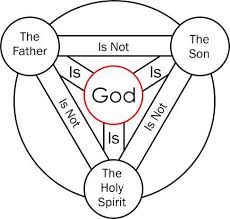|
The Christian doctrine of the Trinity is too-easily neglected, often out of some supposed belief that it is largely an abstraction, and carries little relevance for the day-to-day Christian life. Nothing could be further from the truth. In his book The Deep Things of God: How the Trinity Changes Everything, author and theologian Fred Sanders counters this assumption with some wise reminders: The cry in our day always seems to be for a practical doctrine of the Trinity, for relevance, application, and experiential payoff. Indeed, it is true that the doctrine of the Trinity changes everything about Christian life. But the wisest Christian teachers have always known that shortcuts to relevance are self-defeating. (95) So there are no shortcuts to relevance. But that doesn't mean the relevance of the doctrine doesn't exist. Indeed, as Sanders continues he identifies three significant benefits that a distinctly Trinitarian view of God brings to the Christian faith: (Quotes following the headings below are all from Sanders, The Deep Things of God, pp. 95-96.) 1. The doctrine of the Trinity expels bad ideas about God.Just think of the many unworthy ideas and attitudes about God that the doctrine of the Trinity can help us name, reject, and even deride. The doctrine of the Trinity expels unworthy ideas about the perfection of God's life. It is unworthy to think that God without us is lonely or bored. God is not looking for something to do in the happy land of the Trinity. God did not create the world in order to fill the drafty mansion of heaven with the pitter-patter of little feet. God is not pining away for companionship in a lonesome heaven. Good theological reflection, taking its lead from the Bible, would always reject the idea of divine loneliness or boredom. But as soon as you entertain the truth of the doctrine of the ontological Trinity [i.e., that the triune God has life in Himself], the unworthiness of the idea of a lonely or bored God becomes patently obvious. The triune God is one, but not solitary. Nothing that God does in creation or redemption is done because God lacked employment and occupation. The incarnation of the Son of God was not undertaken as an excellent adventure to provide diversion from the dullness of being the eternal Son. All these ideas are unworthy of God, as the doctrine of the Trinity makes obvious. 2. The doctrine of the Trinity expels a host of unworthy ideas about God's love.The tri-personal love of God is not a love that needs any completion. Consequently, we should avoid presenting the gospel in a way that suggests God is begging us to come back home so he can finally be happy again, as if our redemption repairs a breach that ruptured the blessedness of God. It is unworthy of the glorious gospel of the blessed God to give the impression that we are begging for people to please be reconciled to God so his life won't be ruined by sadness....It is certainly true that God loves you and has a wonderful plan for your life. But behind that famous 'spiritual law' is the eternal love of the Father for the Son in the happy land of the Trinity. 3. The doctrine of the Trinity expels a host of unworthy ideas and attitudes about God's glory.God displays his glory to creatures, chiefly through redemption. But it is unworthy to think that God without us would have nobody to show his glory to. The Father is always delighting in the beloved Son, and the Son is always adoring his holy Father in the unity of the Holy Spirit. Robert Leighton said, 'It is most true of the Blessed Trinity, Satis amplum alter alteri theatrum sumus'; that is is, each is to the other a theater large enough. Furthermore, God arranges all things to the end that they promote and proclaim his own glory, but the doctrine of the Trinity shows one of the ways that this divine self-glorificatin is unselfish. In it, the persons of the Trinity bring about the more conspicuous display of each other's glory.
0 Comments
Leave a Reply. |
Tim WiebeChristian. Husband. Father. Pastor. Learner. Contributor. Reader. Categories
All
Archives
June 2024
|
© 2014-2024 | 11607 M Circle, Omaha NE, 68137 | www.thebrooksideinstitute.net


 RSS Feed
RSS Feed
